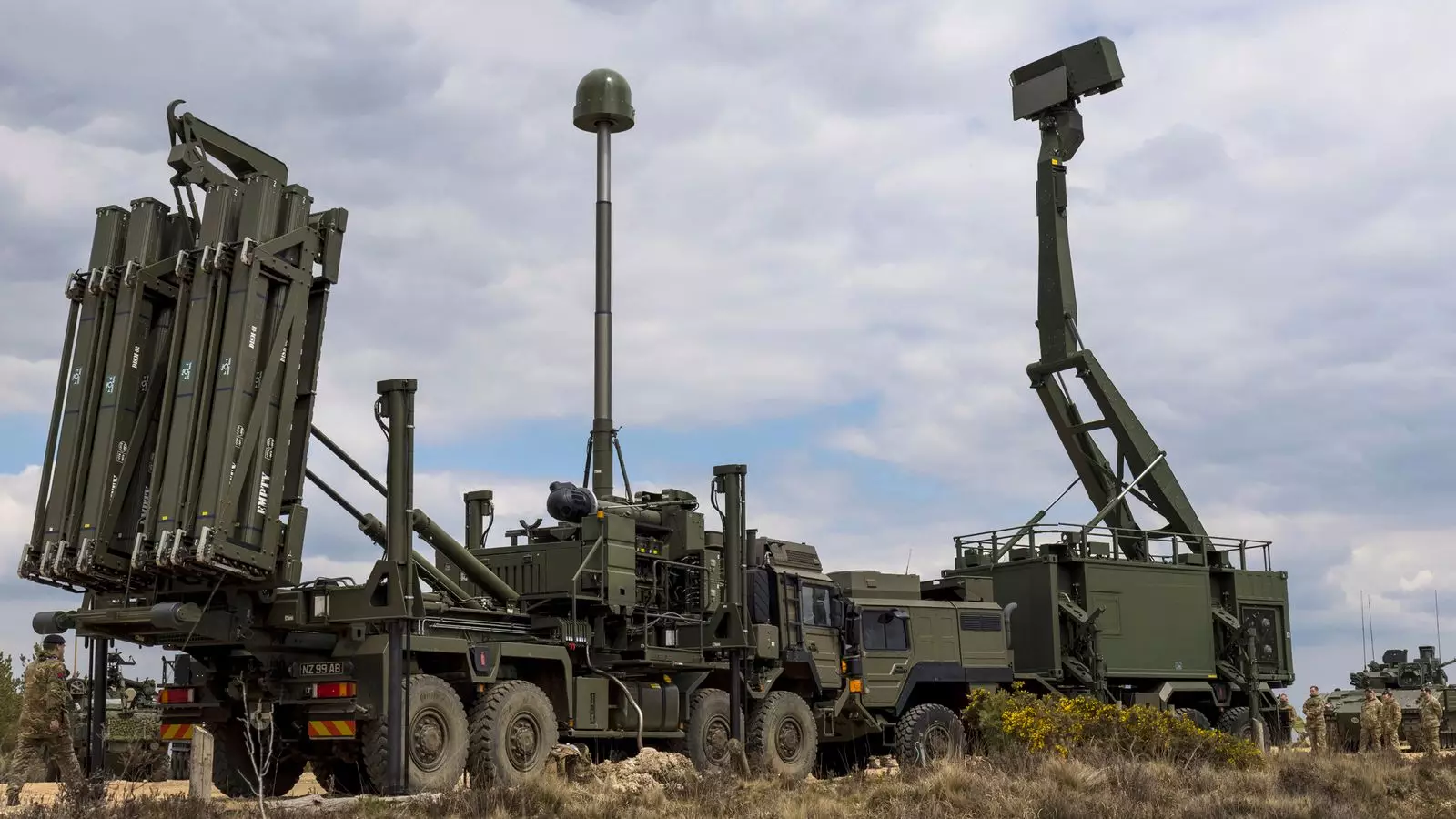The British Ministry of Defence’s announcement to invest £118 million in new air defence missile systems might appear as a decisive move towards greater national security. Yet, beneath this optimistic veneer lies a stark reality: this purchase is largely superficial, offering only a false sense of security amidst an increasingly perilous geopolitical climate. For decades, UK defence has been built on a fragile assumption that threats would remain predictable and manageable. Now, that illusion is crumbling, exposing critical vulnerabilities that are inadequately addressed by the latest procurement.
While the Sky Sabre system and its Land Ceptor missile are a qualitative upgrade from the outdated Rapier systems, their capacities remain limited. They are engineered for conventional aerial threats—fighter aircraft, helicopters, and drones—not for the emerging menace of ballistic and hypersonic missiles. Yet, the UK’s strategic focus seems fixated on tactical defense rather than comprehensive missile deterrence that can adapt to modern warfare’s complexities. This reactive approach reduces Britain’s defences to a misplaced confidence that quick fixes will suffice, ignoring the accelerating sophistication of potential adversaries.
A Narrow Perspective on Threats
One of the most glaring issues is the narrow scope of the UK’s missile defence strategy. Historically, the UK relied on Cold War-era systems like Bloodhound missiles and a layered architecture that included early warning radars such as RAF Fylingdales. Today, these systems are antiquated or insufficient. The new Sky Sabre system—though technologically impressive—does little to mitigate the threat posed by ballistic missiles or hypersonic weapons, which are rapidly becoming the weapons of choice in contemporary conflicts.
This oversight is not accidental but reflects a concerning complacency entrenched in defence planning. The UK’s current stance appears to underestimate or dismiss the scale of the threats posed by state actors such as Russia, China, or Iran—who are rapidly advancing missile technology. The assumption that NATO allies will always compensate for gaps in UK missile defence creates a dangerous dependency on external security architectures, rather than developing autonomous, resilient capabilities. The recent conflicts in Ukraine and the Middle East serve as harsh reminders: missile threats are evolving faster than Britain’s defence procurement cycle and strategy.
Untapped Vulnerabilities and Strategic Shortsightedness
Despite over 50 years of reliance on systems like Rapier, the UK has systematically downsized and deprioritized missile defence. Post-Cold War complacency led to the dismantling or neglect of missile interception capabilities, leaving the country blind to the new and growing reality of missile warfare. The current purchase of Land Ceptor missiles is a weak Band-Aid on a gaping wound. It provides a limited tactical shield that leaves critical infrastructure and population centers dangerously exposed to modern missile onslaughts.
What is most troubling is the absence of a long-term strategic plan. Britain’s government appears to treat missile defence as a secondary concern—something to be patched together in response to crises rather than built into a resilient, forward-looking architecture. Without major investment into space-based early warning systems, missile interceptors capable of countering hypersonic threats, and layered defence systems integrated across all domains, the UK remains vulnerable. Relying on NATO and European allies’ layered defences is an acknowledgment of strategic weakness, not strength.
The Stark Reality: Tactical Measures Mask Strategic Failures
The recent decision to bolster tactical missile defences is, at best, a recognition of existing vulnerabilities—albeit a reactive one. It does not address the core problem: Britain’s lack of a cohesive, multi-layered missile defence strategy capable of countering tomorrow’s threats. As adversaries develop longer-range, faster, and more sophisticated missile systems, the UK’s current approach risks obsolescence.
The geopolitical landscape has shifted dramatically, yet Britain stubbornly clings to a defence posture rooted in Cold War paradigms. The reality is that without urgent, comprehensive upgrades—beyond incremental procurement—the nation’s security remains perilously compromised. Defensive measures alone cannot substitute for strategic foresight; missile systems are just one piece of a much more complex puzzle that requires diplomatic engagement, technological innovation, and a fundamental shift in defence doctrine.
In essence, Britain stands at a crossroads: continue with superficial fixes that lull the public into a false sense of security or invest boldly in a future-proof missile defence strategy that recognizes the true scale of modern threats. The choice will define whether Britain remains a secure power or a vulnerable nation surrendering ground to technologically advanced enemies.

